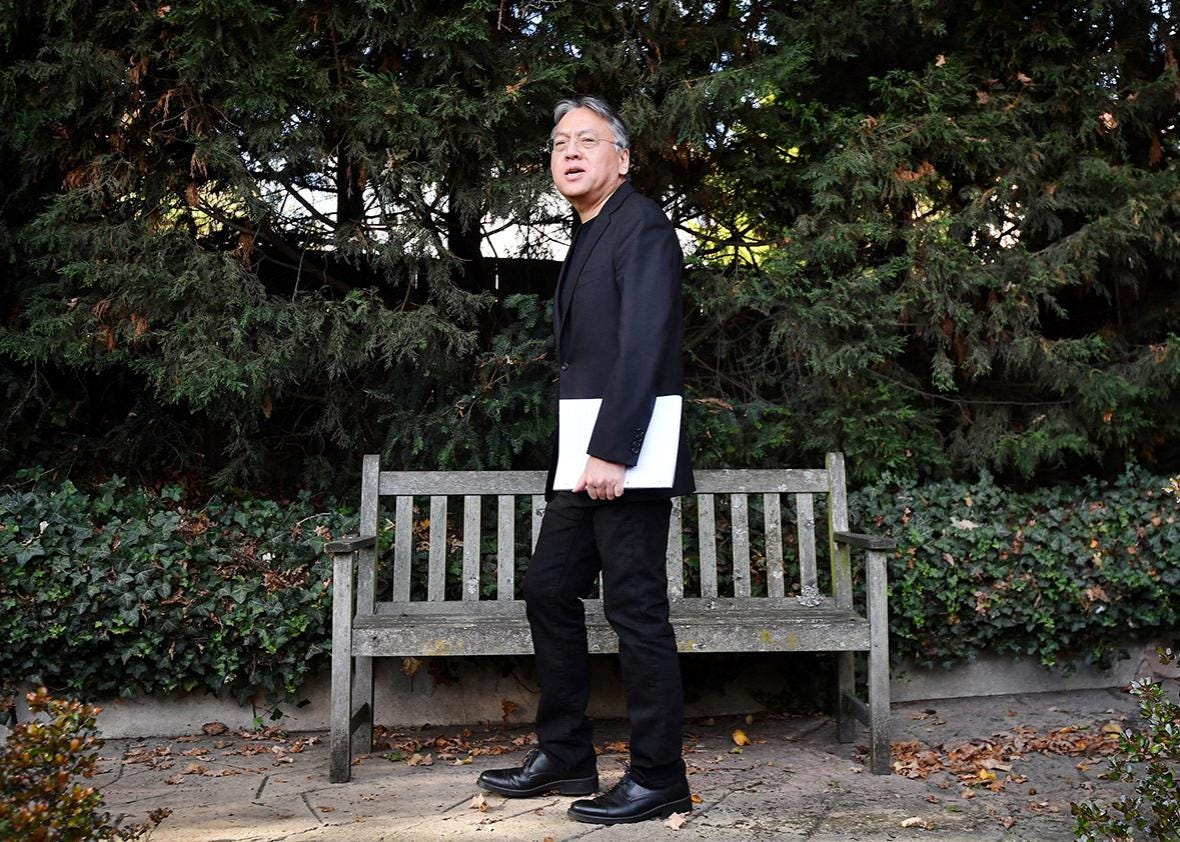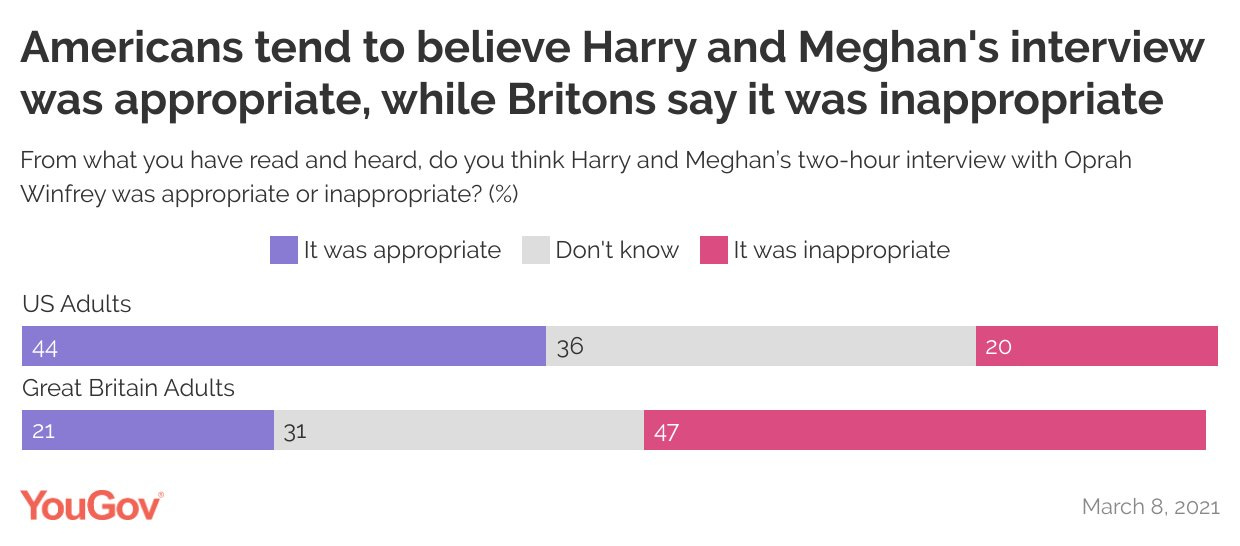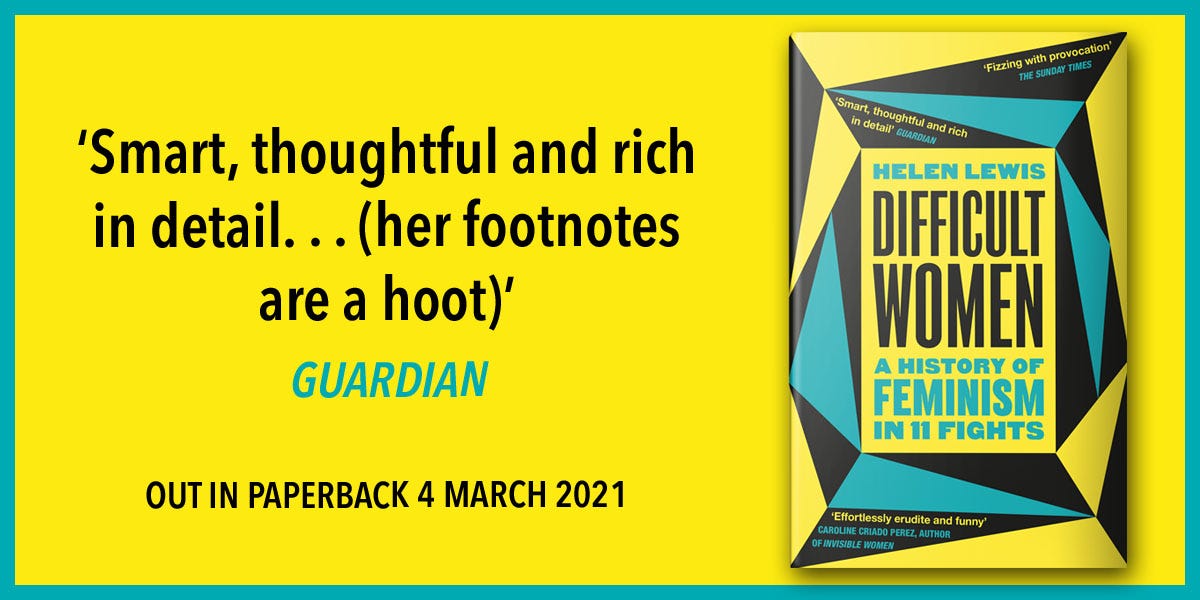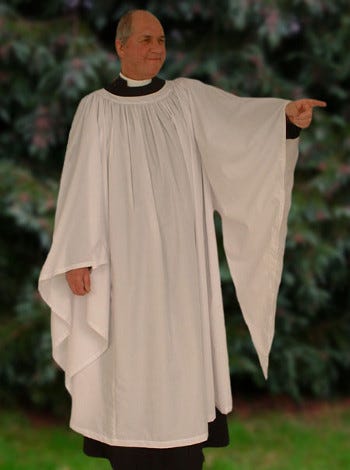Happy Friday!
When did you hit the Lockdown Wall? Those of us in London, Manchester and other badly affected parts of Britain have now been confined to our homes for three months, with at least another month to go. And it has really begun to bite. A normally stoic friend confesses she can’t think of anything to write about—which is the same as saying that there’s nothing to be interested in. Another spoke longingly about spending the entire day in bed, crying—if only the rest of the family wouldn’t see her. A friend who is a fountain of gossip has dried up; there is nothing a SpAd could now do which would excite him, not even sleep with another SpAd. Small, vicious arguments break out on Twitter, but the overwhelming mood is apathy. We are listless, bored, shrivelled. Our brains are full of fog.
Despite what all the jolly articles claim, the lockdown wall can’t be avoided by doing everything “right”. I’ve been cooking way more, enjoying daily walks in whatever sunshine is available, and exercising three times a week. I do a Zoom book group. I call my parents twice a week to check how they’re doing. But this is still a miserable way to live. I bought a coffee the other day and treasured every platitude exchanged with the guy at the counter. I am hungry for small talk. When I get the rare chance to speak, I am too eager. Am I freaking people out? Will I meet up with five friends in April and do nothing but stare unblinking at their wetly moving mouths until they edge slowly away?
All good questions. However, one thing has helped recently, and that’s borrowing random books from Libby, the library app, with the strict rule that if I’m not enjoying them 50 pages in, then I bail. This approach has so far yielded a full-read of Toni Morrison’s Beloved; the first volume of Arsene Lupin stories; two books about forensic science, Unnatural Causes and All That Remains; and Angela Carter’s The Bloody Chamber, a collection of dark, sexy, feministish rewrites of fairytales. The outlook was less sunny for the second volume of Diana Cooper’s diaries (didn’t understand who anyone was, couldn’t find the first volume).
Tragically, I think the reason that Libby is working to pull me out of my aversion to reading is because it’s on my phone, aka the device which my subconscious associates with ennui-laden doomscrolling, rather than my Kindle or a physical book, which I associate with nutritious, fibre-filled literary consumption.
Anyway, I’ve now picked up Patricia Lockwood’s memoir Priestdaddy for no other reason than I was raised in a Catholic family, and I too once thought about running away with a man I met on the internet. So I appreciated lines like this:
It was 2002, and back then, everyone believed that the internet was a country where murderers lived. . . We were standing in a triangle in the living room of the St Vincent de Paul rectory, which was so ancient, stony and capacious it had actually been used as a stop on the Underground Railroad . . . the drama of the scene ought to have been tense and throbbing, but it was undercut somewhat by my mother’s decorating, which ran heavily to bowls of gold balls. Still, we played our parts: every once in a while my father would bang his fist while looking patriarchal, and my mother would turn to stare out of the window while looking powerless, which contributed to the overall impression that we were participating in a Tennessee Williams play where “the internet” was being used as code for “homosexuality.”
(To nerd out for a minute, one of the things I love about Lockwood’s writing here is the use of filler words for rhythm. Strict stylists would have you cut “actually”, “somewhat” and “overall”, but they make the prose bounce like speech.)
Priestdaddy also discusses vestment catalogues, which, when my dad became a deacon, my mother and I found just about the funniest things we’d ever seen. Behold:
Until next time,
Helen
PS. One other bit of lockdown culture that’s been keeping me going: ITA Live. Ivo Van Hove’s home theater in Amsterdam has been broadcasting its blockbuster shows live on Sundays. Last week was Milo Rau’s La Reprise, a reconstruction of a homophobic murder in Liege; before that there were Van Hove’s boxset versions of Shakespeare’s history plays, Roman Tragedies and Kings of War.
The ITA ensemble are incredible actors, and if you haven’t seen much European theatre before, this is the perfect way to sample something very different to the English and American traditions. On March 21, it’s the turn of Robert Icke’s Oedipus—a show so good (and so short) that Jonathan stayed awake all the way through, which is his version of five stars. Don’t let the subtitles put you off: this is an insanely talented ensemble delivering one of the best plays of the last decade.
Kazuo Ishiguro Sees What the World Is Doing To Us (New York Times)
If the experience offered [Ishiguro] a useful glimpse behind the scenes of a grand old country house, the job he took after graduating, at an organization in West London that helped homeless people find housing, taught him something about life at the other end of the social spectrum. While he was working there, he met Lorna MacDougall, a social worker from Glasgow whom he would later marry. MacDougall is Ishiguro’s first and most important reader, and her comments can be unsparing. After reading the first 80 pages of his previous novel, “The Buried Giant” (2015), a historical fantasy set in Dark Ages Britain, she told him that the ornate dialogue simply wasn’t working and that he needed to start again. Ishiguro did as she suggested.
This profile of Ishiguro is good on his exploration of individualism, his working practices—and is definitely one for my “if you want to be an artist, get a wife” files. (See also, Jane Cornwell, wife of John Le Carré, “his most honest critic and loyal champion . . . also his uncomplaining typist.”)
Meghan And Harry Go to War (The Atlantic)
Meghan and Harry see their complaints against the press as social-justice activism, holding the media to account for its racism and general heartlessness. That elevates their cause above a petty dispute over who made whom cry about a bridesmaid’s dress three years ago. Much of the media sees those same complaints as self-pity, the entitled whining of millionaires who expect nothing but applause for lecturing ordinary people on climate change and female empowerment.
The problem for Meghan and Harry is that their beef with the House of Windsor is currently the most interesting thing about them.
My medium-read on that Oprah interview. Further to my suggestion that American and British media outlets might respond differently to the encounter, here is the New Yorker on how Meghan “gave off the esprit of a young woman whose capacity for placation had been tapped out”, and the New York Times on “Harry’s racial awakening” as he confronts his white privilege. The latter contains the lines: “Back in 2005, when Harry wore a Nazi uniform to a costume party, it would have been impossible to predict his trajectory.” Would it? I’m pretty sure I thought at the time, what a dumb young posh dude, but I don’t remember thinking this destined him for a career in Combat 18. Also, shouldn’t we be talking a little bit about his “prince privilege”?
Anyway, as I was saying:
PS. Hard no on this, which is the sort of thing that led to the Hapsburg jaw:
Quick Links
Department of Small Pleasures: the Google Chrome Arts & Culture browser extension puts an artwork from its collection in your freshly opened tab. Today it is serving me this graffiti scorpion (above), but there’s also a lot of hay wains, misty boats and carefully placed oranges, if you’re a traditionalist. (Hat-tip to Caroline Crampton for the suggestion.)
“There was a lot of good stuff in blogging. But there was a dilemma. The supply of actual news couldn’t keep up with the demand for “content.” This encouraged a certain style of commentary—a style, I confess, I think I excelled at: the take.” Jonah Goldberg at The Dispatch on whether blogging killed journalism. This piece reminded me of a classic Ftrain post (from 2011!) on the unique appeal of the internet as a “customer service medium.” It posits that the fundamental question the web is set up to answer is this: “Why wasn’t I consulted?” (Or as Mitchell and Webb put it two years earlier: SEND US YOUR RECKONS.)
“My babies are almost eight months old and I can count on one hand the number of people we’ve spent time with since they were born. Other than my husband, not a single person I love has really seen me being a mother. This new person I’ve become since I gave birth is a person virtually no one knows.” My colleague Sophie’s piece on having twins in a pandemic is beautiful (Atlantic)
PS. There are still places for the next Zoom journalism masterclass I’m running, on how to be a critic, with Arifa Akbar of the Guardian, Anita Singh of the Telegraph and Matthew Anderson of the NYT. It’s 8pm on March 22, and it’s free.











"...badly affected parts of Britain have now been confined to our homes for three months". Well quite. Except that sitting here in the Midlands I don't think even the wider (trying to emphasise not directing this specifically at Helen) UK commentariat...ok I will say this...let alone the London commentariat have really engaged with the lockdown experience in the midlands and north. I am locked down in Nottingham. Here there has been no social life - if measured by when you were allowed to sit outside a bar or restaurant - since the last week of October. Repeat for emphasis, since October. Unlike in London there was no Tier 2 Kay Burley style Christmas restaurant crawls in December. Like everything Helen wrote here. It has been hard. Really hard. I can't think of anywhere in the world that has had the full social-isolation pandemic experience of the midlands, north of England and some other parts of the UK. Where in the world has been locked down - not for three months - but getting on for five months with nearly another two months to go before we can properly socialise again. Has anywhere else had anything like this experience? I am frustrated that the catastrophic awfulness of the Boris Johnson government's handling of the pandemic hasn't been properly told. I wonder how much the fact that most of the UK's media had the relative release of Tier 2 in December has blinded them to the lived experience of all of this for us living elsewhere. Well, that's my reckons for today.
Yeah I'm done. As the parent of a small child, the reopening of the soft-play seems like a beautiful future of which I can only dream. Oh, for something to actually DO with your toddler. But aside from moaning: one interesting thing I've observed returning to school as a teacher this week is that no one is making much effort to engage with anyone else. We've all been away from each other for 3 months, but there's nothing to say, no small talk to be had. Like we're on an interminable coach journey, and we all just want to sit with our headphones in, and we're waiting until we've arrived at the place and had a shower and a meal, and THEN we might actually make an effort.